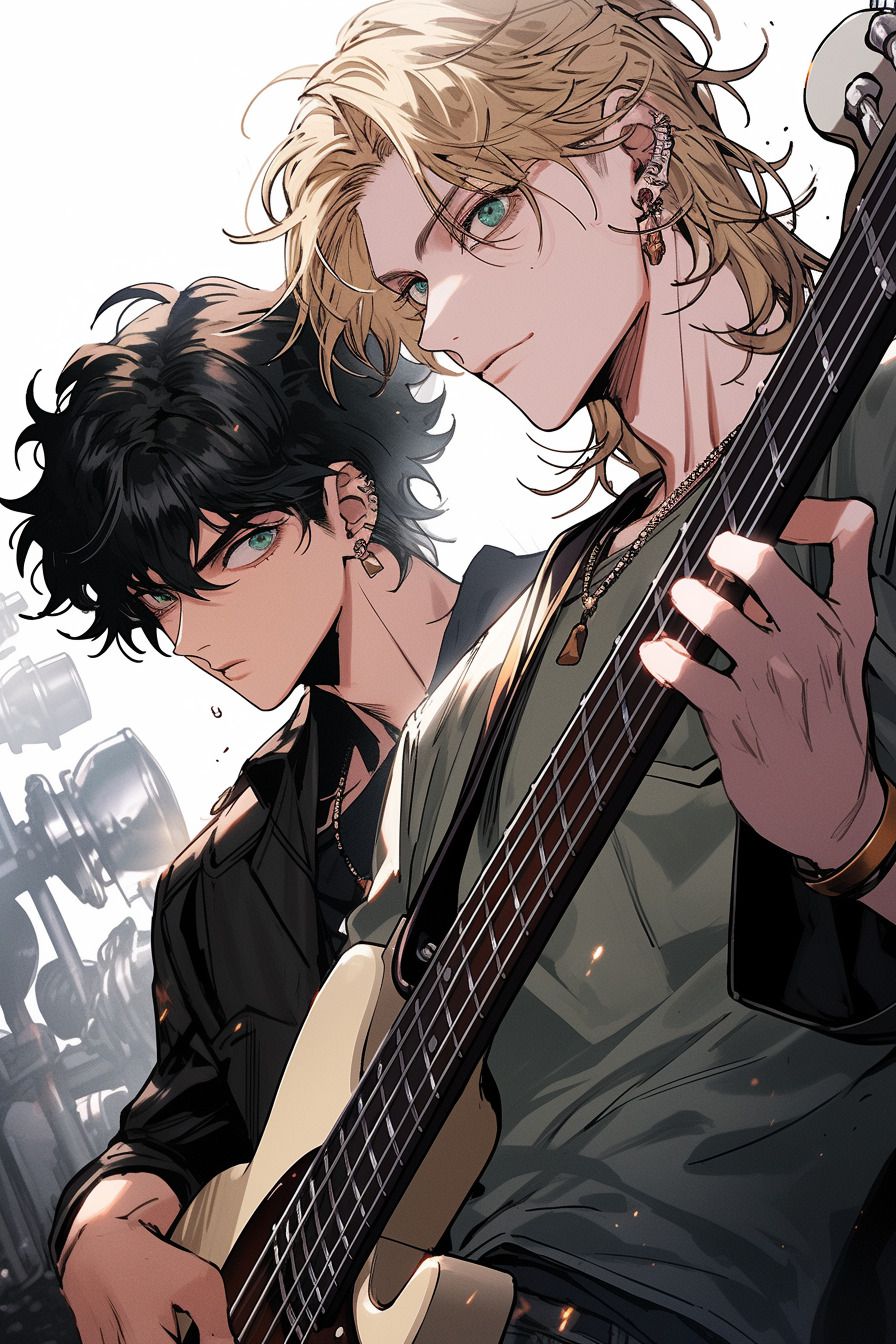Chapter 19
So Edith Parker temporarily escaped pain, torment, injustice, resentment, and grievance, took a breath, and felt that he was still alive.
He finally didn’t have to confine himself within hatred. It was no longer the only option in life.
He could chase after that person’s silhouette, running, gasping for air, thinking: So there is a vessel that can be hysterical for me, that can stand in the mud and rain and shout, “This world is so fucking messed up!”—telling me that silence isn’t cowardice, that one day I’ll be able to fight back against all numbness, all pain.
So Henry Clark is that kind of person, and does he need a bassist who can match him? I learn things quickly—very quickly.
I’m not afraid of the burning aura of genius; I can fill this gap.
I’ll be the new exit in his dark tunnel, ready to be smashed open at any time.
But when the moment truly arrived, when he stood before Henry Clark as a bassist, Edith Parker hesitated.
He also understood that it was the past Henry Clark who needed this.
And now? He wasn’t sure. Henry Clark’s hand could no longer play guitar; his life had been shattered, and it was hard to turn back.
Nervousness welled up, and Edith Parker felt as if he’d returned to when he first started learning the instrument.
Back then, Edith Parker was thirteen, and he used a thousand yuan prize from a competition to buy his first bass. He also found Henry Clark’s account on a music platform. At that time, Unordered Corner had just become popular, and Henry Clark was only seventeen, uploading a few demos on his personal account.
His naming style was peculiar, always writing a long string. For example, [Can I Raise Thirty Cats], [Really Like My New Name], and [If Anyone Stops Me from Eating Street Food, I’ll Be Mad at Them]. Of course, later, when these were made into finished songs, the names were replaced with more suitable titles for release.
Among them, there was one song title that stood out for its simplicity—just an ellipsis.
It was also the only demo that was never made into a finished track.
Henry Clark once replied in the comments of this song, talking to himself: None of the basslines I wrote fit.
Probably for the sake of team harmony, this slightly complaining comment was later deleted.
But Edith Parker always remembered.
He listened to that demo countless times—while biking, while doing homework, even while sleeping. Later, on a sleepless midnight, he grabbed his bass and ran to the rooftop of his apartment building, writing a bassline in twenty minutes.
When he came down, his fingertips were frozen stiff, but his palms were burning hot.
Staring at his own hands, as the sound of rain gradually rose, his thoughts drifted from that winter night back to this rented room.
He didn’t say anything, just played the demo on his phone, his fingers lightly pressing the strings.
Hearing the familiar guitar arrangement, Henry Clark was stunned.
A few minutes ago, he had put on a “go ahead, impress me” attitude, imagining which song Edith Parker would choose. He thought of countless tracks, but never expected it to be this one.
This was the song he wrote for his mother back then.
The demo’s arrangement was close to Midwest emo and math rock, with a bouncy guitar rhythm. The asymmetric, staggered drum arrangement was also suggested by Henry Clark, but back then, none of the basslines Charles Reed provided satisfied him—the groove was off, just tacked onto the guitar, like a heavy anchor dragging the whole melody down.
So, in the end, he didn’t put any bass in the demo, nor did he make it into a finished song. He had almost harsh standards when it came to music—if it wasn’t right, it wasn’t right; even a little off, he didn’t want it, let alone for such a special song.
But at this very moment, the instant Edith Parker’s bass came in, everything was different.
A long-sealed, gray corner of his heart was suddenly lit up.
Was this the feeling of something dead coming back to life?
Unlike all the previous basslines, from the very first second, Edith Parker launched into a dazzling two-handed tapping technique—catchy to the extreme, interspersed with rhythmic slaps between the taps, never dull, with an incredible sense of groove.
In just a dozen seconds, a unique bass foundation was laid—not just padding, not just a backdrop, not just accompaniment.
Instead, it unabashedly tangled and sparred with his guitar.
It was a back-and-forth, evenly matched, yet maintaining an emotional resonance on the same frequency. Every groove was just right, seamless, as if he could completely understand the song Henry Clark had written.
His hand clenched into a fist unconsciously. In that moment, his youthful soul seemed to return to his body, joining this boy in front of him, playing recklessly and exuberantly together.
Edith Parker lowered his head, damp bangs half-covering his eyes, the black-and-gray gradient bass almost fused with him, droplets from his hair falling onto the instrument, as if turning into notes.
His fingering, groove, and rhythm arrangement were flawless—crisp and decisive. The low melody poured out like heavy rain against glass, staggered and orderly.
If you listened with your eyes closed, you’d think this bassline came from a seasoned veteran who had practiced for years; even if it was released for others to learn, few could play it right.
And he was only eighteen.
Thinking of what Edith Parker had just said, Henry Clark denied it in his heart.
How could it be that he only played bass because of him?
This person… was clearly born to be a bassist.
As the last note faded, Edith Parker gently pressed his hand against the strings.
